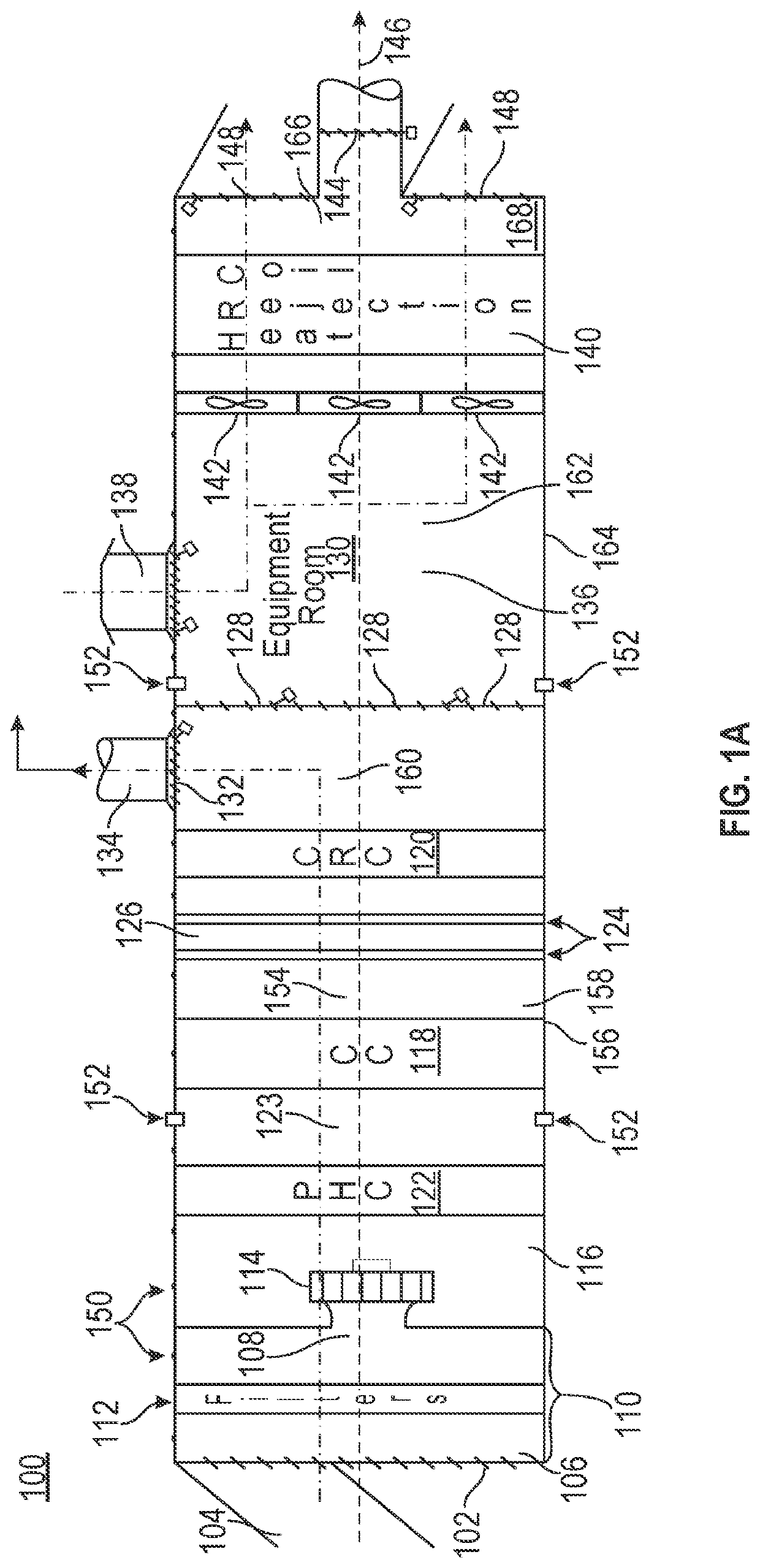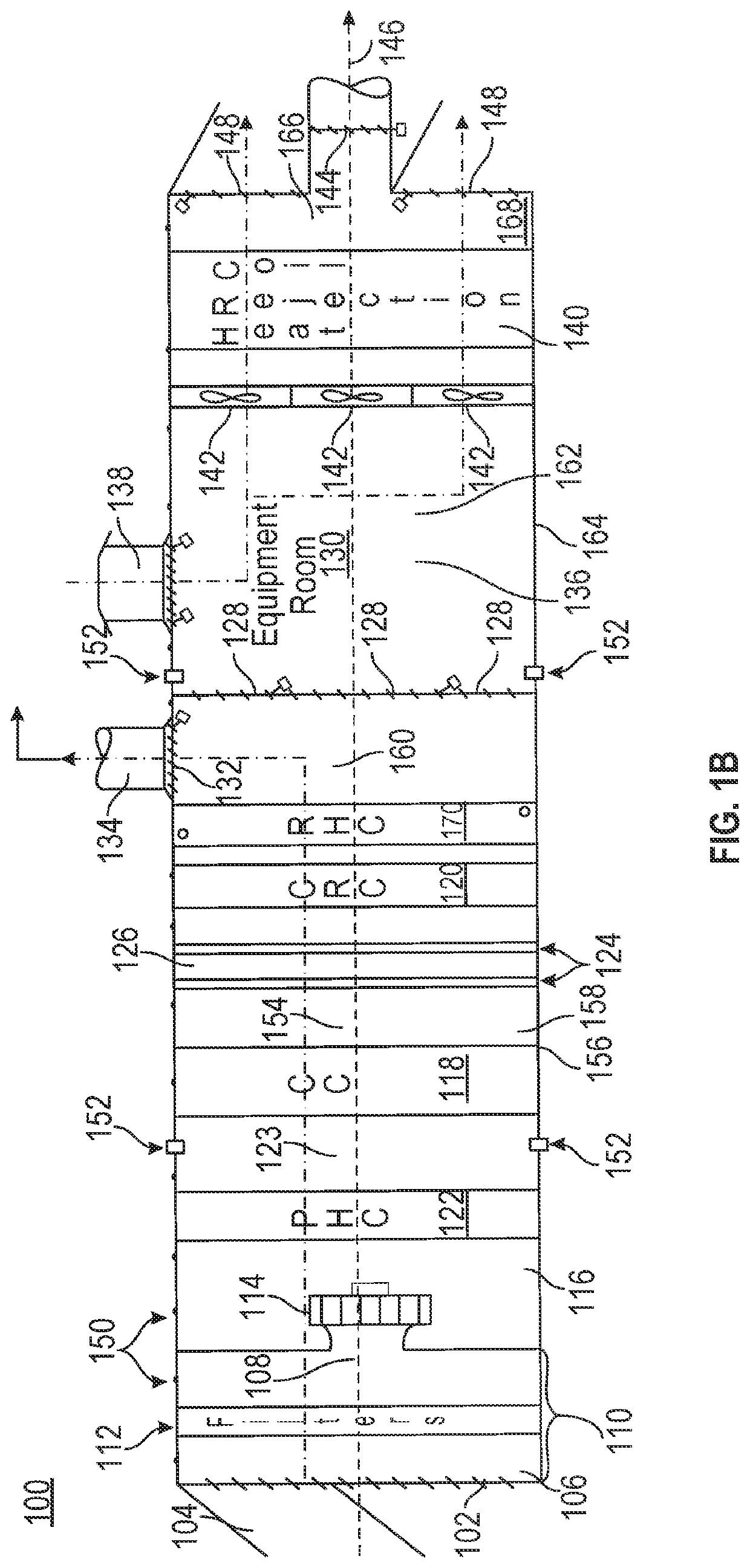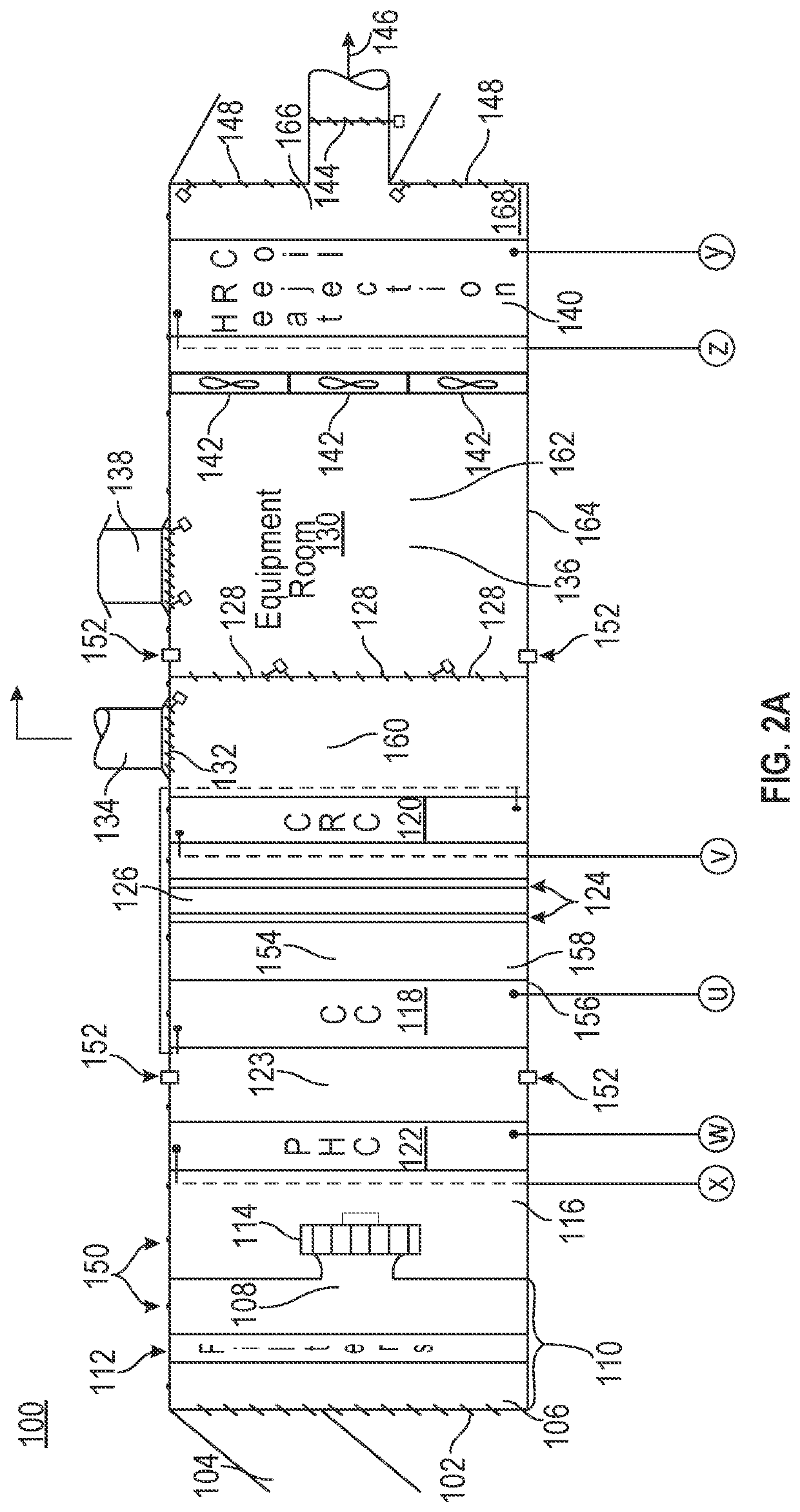Energy recovery high efficiency dehumidification system
a dehumidification system and energy recovery technology, applied in space heating and ventilation, lighting and heating apparatus, heating types, etc., can solve the problems of insufficient and poorly designed cooling, inconvenient use, and inability to meet the needs of users, and achieve high efficiency and mold growth. the effect of high efficiency
- Summary
- Abstract
- Description
- Claims
- Application Information
AI Technical Summary
Benefits of technology
Problems solved by technology
Method used
Image
Examples
Embodiment Construction
[0020]While the present technology is susceptible of embodiment in many different forms, there is shown in the drawings and will herein be described in detail several specific embodiments with the understanding that the present disclosure is to be considered as an exemplification of the principles of the present technology and is not intended to limit the technology to the embodiments illustrated.
[0021]It will be understood that like or analogous elements and / or components, referred to herein, may be identified throughout the drawings with like reference characters. It will be further understood that several of the figures are merely schematic representations of the present subject matter. As such, some of the components may have been distorted from their actual scale for pictorial clarity.
[0022]When a feature or element is herein referred to as being “on” another feature or element, it can be directly on the other feature or element or intervening features and / or elements may also ...
PUM
 Login to view more
Login to view more Abstract
Description
Claims
Application Information
 Login to view more
Login to view more - R&D Engineer
- R&D Manager
- IP Professional
- Industry Leading Data Capabilities
- Powerful AI technology
- Patent DNA Extraction
Browse by: Latest US Patents, China's latest patents, Technical Efficacy Thesaurus, Application Domain, Technology Topic.
© 2024 PatSnap. All rights reserved.Legal|Privacy policy|Modern Slavery Act Transparency Statement|Sitemap



